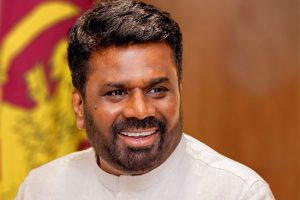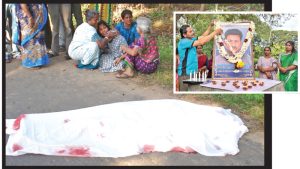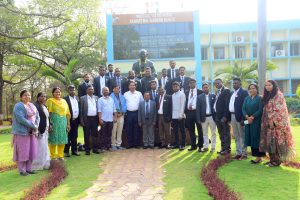National Plan for Children with Autism and Neurodevelopmental Disorders

Secretary to the President, Dr. Nandika Sanath Kumanayake, instructed relevant officials to submit a conceptual proposal within two weeks for a joint plan to establish a national mechanism for treatment and day-care centres for children with autism and neurodevelopmental disorders.
These instructions were given by the President’s Secretary to the relevant officials during a discussion held last week, led by the ‘Prajashakthi’ Secretariat, regarding this programme, which is being implemented according to a concept by President Anura Kumara Dissanayake. This programme will be implemented by the relevant line ministries and affiliated institutions, with coordination handled by the Presidential Secretariat.
During the discussion, matters such as reallocating Rs. 250 million from the funds allocated to the Ministry of Women and Child Affairs in this year’s budget back to the Treasury and then providing it to District Secretaries through the Department of Social Services, preparing a human resource development plan necessary for operating these day-care centres, and developing a new model with a scientific background for implementing this programme by engaging relevant line ministries and affiliated institutions, were discussed.
Autism Spectrum Disorder (ASD) is increasingly recognized in Sri Lanka, though awareness and services have historically been limited. Estimates of prevalence are unclear due to a lack of comprehensive national data, but anecdotal and regional reports suggest rising diagnoses, partly due to improved awareness and diagnostic practices.
Many families first seek help from religious or traditional healers due to cultural beliefs. Acceptance of neurodiversity is still limited, but is slowly improving with education.
The Autism Prevalence & Social Context in Sri Lanka shows, It’s estimated that about 20% of children in Sri Lanka live with some form of disability, including autism.
According to Ayati Trust, approximately 1 in 93 Sri Lankan children (≈1.1%) have been diagnosed with autism. People with autism often encounter strong social stigma, misconceptions, and delays in accessing diagnosis and support.
Established in January 2020, the Ayati Centre in Ragama (Faculty of Medicine, University of Kelaniya) is Sri Lanka’s first-ever national centre for children with disabilities, including autism.
In the service of Ayati Trust, over 14,000 children have received support over five years. Typically, 100 children are seen daily, with about 175–200 attending clinics each weekday.
And, some key challenges have been identified: Limited Awareness and Stigma. Social stigma surrounding autism remains significant, especially in rural areas. Misunderstandings about autism lead to delayed diagnoses and limited support.
Access to Diagnosis and Intervention: Early diagnosis is difficult due to a lack of trained professionals and resources. Services are mostly concentrated in Colombo and a few urban centers. And, rural families often lack access to diagnostic tools, speech therapists, and behavioral interventions.
Education Barriers: Mainstream schools are often ill-equipped to handle children with autism. There is a shortage of special education teachers and inclusive education programs. Some private special schools exist, but they are expensive and limited in number.
Financial Burden: Therapy (speech, occupational, ABA, etc.) is often expensive and long-term. Most families pay out of pocket, making sustained intervention unaffordable for many.






